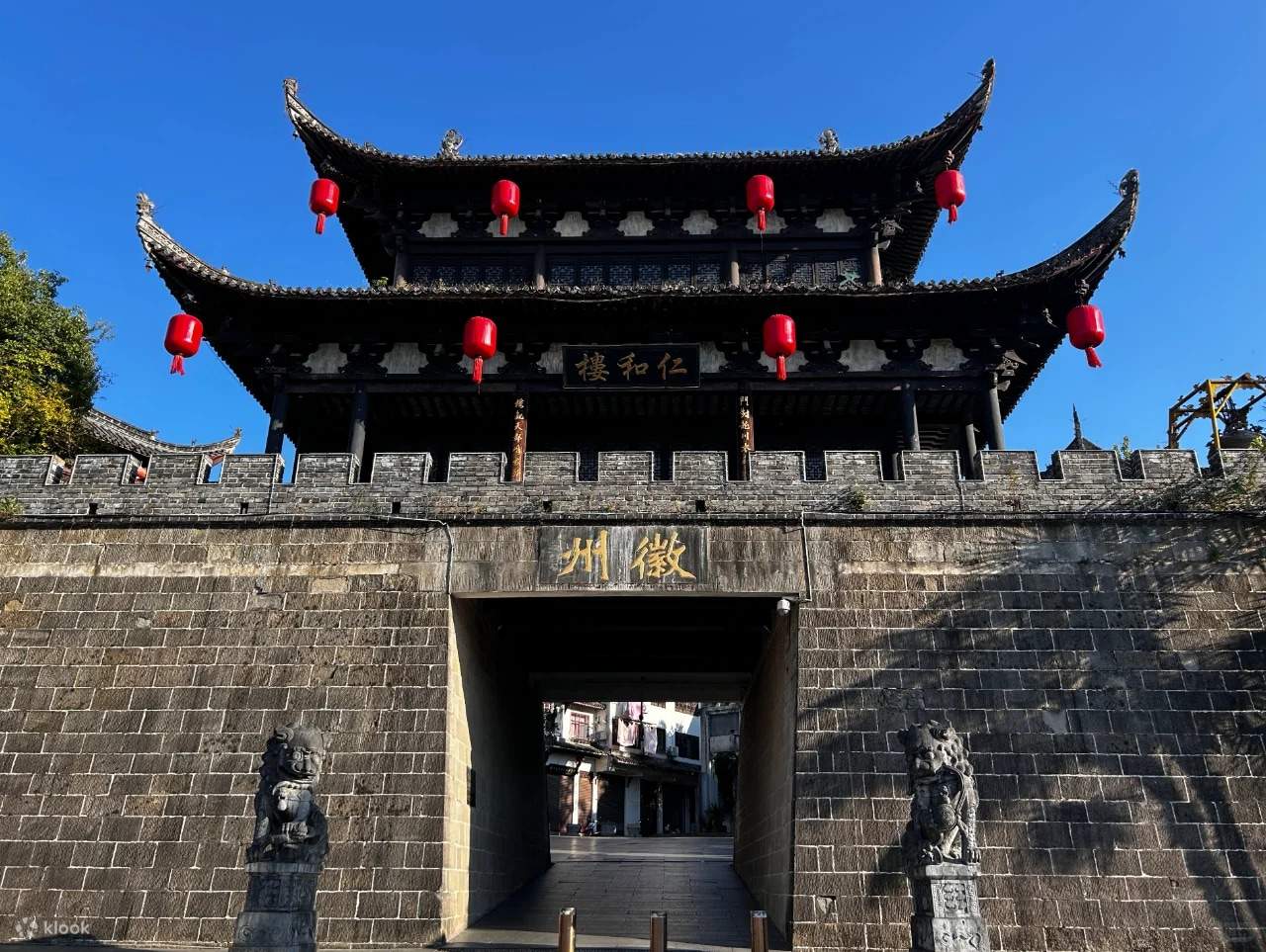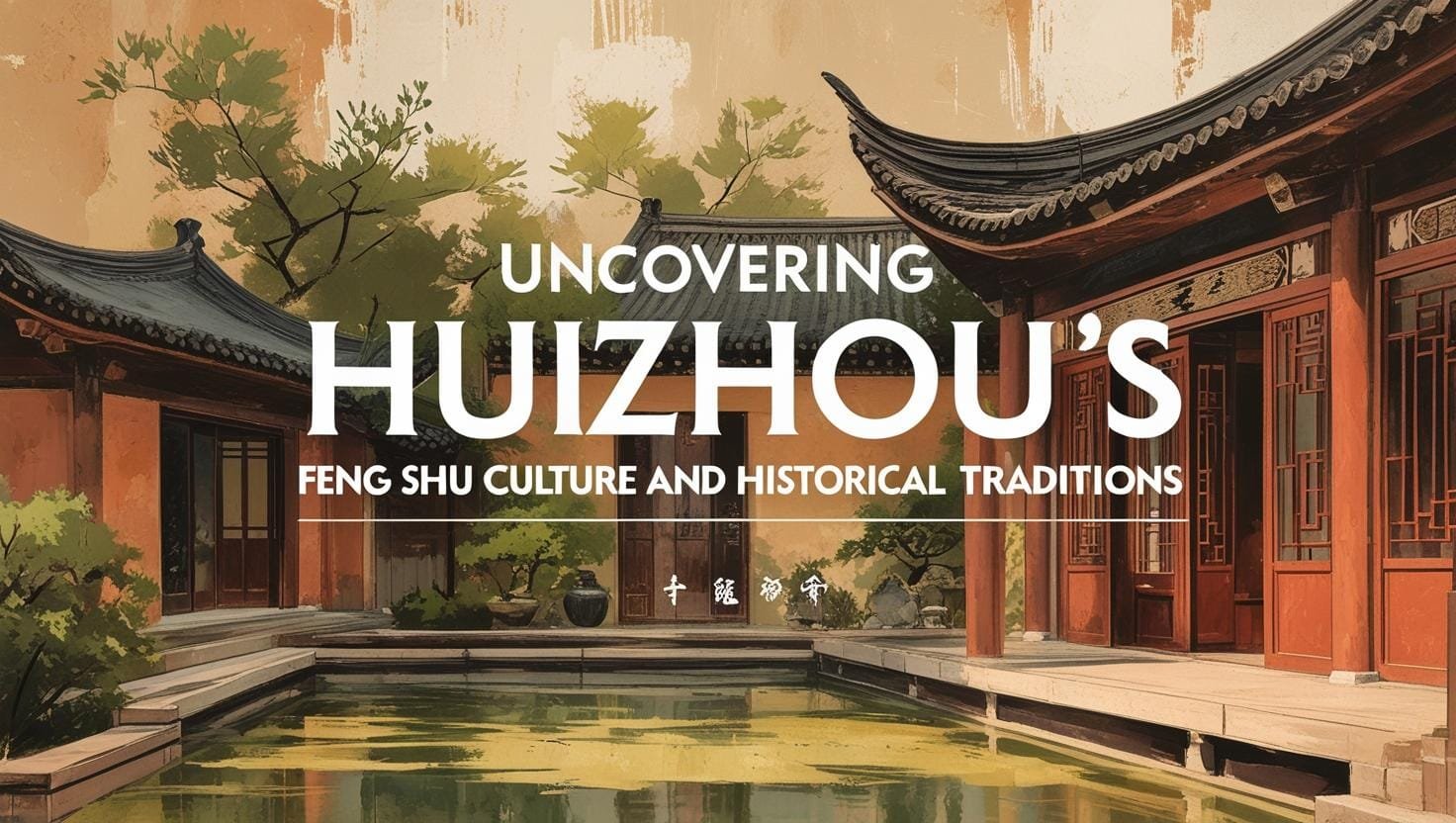Uncovering Huizhou’s Feng Shui Culture and Historical Traditions

Welcome to the enchanting world of Huizhou, a hidden gem in China’s Anhui Province that’s rich with Huizhou Feng Shui Culture. For travelers and culture enthusiasts eager to delve into the ancient art of balancing energy with the environment, Huizhou offers a captivating journey through time. Here, age-old traditions blend seamlessly with stunning landscapes, making it a must-visit for those exploring China Feng Shui history and cultural attractions in Huizhou. At jusha.travel, we’re passionate about uncovering these secrets to help you craft unforgettable China adventures—whether you’re wandering historic villages or savoring local flavors. In this post, we’ll explore how Huizhou Feng Shui Culture shapes everyday life, drawing from its deep roots in China history travel and offering practical tips for your own exploration.
The Foundations of Huizhou Feng Shui Culture

At the heart of Huizhou Feng Shui Culture lies a profound respect for harmony between humans and nature, a practice that’s been meticulously woven into the fabric of daily life for centuries. Feng shui, an ancient Chinese philosophy, isn’t just about superstition—it’s a practical guide to creating balanced environments that promote prosperity and well-being. In Huizhou, this is evident in the way villages were carefully planned to align with natural features like mountains and rivers.
For instance, when founding a new settlement, Huizhou elders and feng shui masters used the luopan compass to select sites that harmonized with the surrounding landscape, often positioning homes at the foot of hills facing water bodies for optimal energy flow. A prime example is Hongcun Village, where an artificial crescent-shaped lake was engineered to enhance auspicious energies, symbolizing wealth and protection (as detailed in this insightful resource on Huizhou’s literati merchants). This isn’t just history; it’s a living tradition that travelers can experience today. If you’re planning a trip, consider starting with Huizhou cultural landmarks like Hongcun or Xidi, both UNESCO World Heritage sites. These spots offer a hands-on Huizhou travel guide experience, where you can wander through winding paths and observe how feng shui principles dictate the layout. A practical tip: Visit during the early morning or late afternoon for fewer crowds and better photo opportunities—the soft light highlights the intricate details of these ancient designs. And for food lovers, pair your exploration with a local tea ceremony; the ritual itself embodies feng shui’s emphasis on mindfulness, using elements like flowing water to represent life’s energy.
This connection to nature also ties into broader China Feng Shui history, where ecological wisdom has evolved from imperial practices to modern sustainability. As you explore, remember that Huizhou’s feng shui isn’t static—it’s a dynamic force that influences everything from architecture to community life, making it a perfect blend of culture and adventure for modern travelers.
Historical Context: Clans and Confucian Influences in Huizhou

Delving deeper into Huizhou Feng Shui Culture, we uncover the role of clan organizations and Confucian traditions, which have shaped the region’s social and spiritual landscape. Huizhou society was built around extended family clans, with ancestral temples serving as the beating heart of community life. These temples weren’t just places of worship; they were hubs for reinforcing values like filial piety, loyalty, and integrity—core tenets of Confucianism that intertwined with feng shui to create a sense of collective harmony.
The Xin’an Li school of thought, unique to Huizhou, blended practical Confucian ethics with feng shui principles, guiding everything from family governance to economic activities. During the Ming and Qing dynasties, this fusion helped Huizhou merchants thrive while maintaining moral standards, as explored in this comprehensive overview of Huizhou culture. For travelers, this means visiting sites like the ancestral halls in Yixian County, where ornate banners and tablets narrate stories of resilience and unity.
As a Huizhou travel guide, I recommend joining a guided tour to these ccultural attractions in Huizhou. Not only will you learn about the historical significance, but you’ll also gain insights into how these traditions persist today. For example, many families still consult feng shui masters for major decisions, blending ancient wisdom with modern life. If you’re a food enthusiast, try sampling Huizhou’s signature smoked dishes or fermented beans in a clan-hosted meal—these culinary traditions reflect the same emphasis on balance and community.
Interestingly, China history travel enthusiasts will appreciate how Huizhou’s clan system adapted during turbulent times, such as the cultural revolutions, to preserve its heritage. This resilience offers a lesson in cultural sensitivity: When visiting, approach these sites with respect, perhaps by participating in a simple ritual like lighting incense, which honors the ancestors and aligns with feng shui’s spiritual aspects. By understanding this historical context, you’ll see Huizhou Feng Shui Culture as more than a relic—it’s a vibrant thread in China’s tapestry.
Architectural Wonders: Manifestations of Feng Shui and Values
.jpg)
Huizhou’s architecture is a breathtaking testament to Huizhou Feng Shui Culture, where every beam and courtyard embodies principles of harmony, security, and prosperity. Traditional Huizhou homes, known as “four-sided enclosures,” feature inward-sloping roofs that channel rainwater—symbolizing wealth—into central courtyards, directly influenced by feng shui’s focus on water as a life-giving force. These designs, as outlined in this detailed guide to Huizhou architecture, also incorporate “horse-head walls” for fire protection and aesthetic simplicity, reflecting Neo-Confucian values championed by philosophers like Zhu Xi.
Exploring Huizhou cultural landmarks like Chengkan Village reveals how these elements create a microcosm of balance. Stilt-style houses and multi-story structures adapt to the hilly terrain, merging functionality with feng shui’s emphasis on yin and yang. For travelers, this means immersive experiences, such as walking through preserved compounds where you can feel the intentional flow of energy.
As part of your Huizhou travel guide, don’t miss opportunities to engage with these sites through cultural workshops—many offer hands-on sessions on feng shui interpretation, linking it to modern applications like sustainable living. Food-wise, Huizhou’s architecture often includes kitchens designed for optimal energy, enhancing the flavors of local specialties like braised pork or mountain herbs. A fun fact: The use of muted colors in buildings aligns with imperial regulations and feng shui’s advocacy for restraint, making these structures not just homes, but holistic environments.
In the context of China Feng Shui history, Huizhou’s architecture evolved from imperial influences to address local needs, as discussed in this analysis of feng shui’s development. For culture enthusiasts, this section of your journey highlights how cultural attractions in Huizhou serve as bridges between past and present, inspiring a deeper appreciation for China’s innovative spirit.
Evolution and Legacy: The Modern Relevance of Huizhou’s Traditions
While rooted in antiquity, Huizhou Feng Shui Culture continues to evolve, blending historical practices with contemporary insights. Originally tied to imperial courts, feng shui in Huizhou has shifted from elite rituals to everyday ecology, emphasizing balance in an era of rapid urbanization. Scholars now recognize its environmental wisdom, as seen in this research summary on Chinese feng shui, which highlights how principles like aligning with natural landscapes contribute to sustainable living.
For China history travel buffs, Huizhou’s legacy lies in its integration of economics, morality, and environment. Merchants once used feng shui to guide business decisions, fostering prosperity while upholding Confucian ethics. Today, visitors can witness this in living villages, where modern adaptations—like eco-friendly renovations—keep traditions alive. Practical tip: Use apps or guided tours for real-time feng shui analysis, enhancing your travel experience with technology that complements ancient wisdom.
Explore cultural attractions in Huizhou through themed tours, such as those in Huangshan, where you can combine hiking with feng shui lessons. Food and tech enthusiasts might enjoy how local innovations, like smart home designs inspired by traditional layouts, merge culture with modernity. As we wrap up, remember that Huizhou Feng Shui Culture offers timeless inspiration for balanced living.
In conclusion, uncovering Huizhou’s Feng Shui Culture and Historical Traditions reveals a world where ancient wisdom meets everyday adventure, enriching your China history travel with profound insights. From the harmonious village designs to the enduring clan values, Huizhou invites you to experience the essence of Chinese heritage. Here at jusha.travel, we love sharing tips to make your China journey unforgettable—whether you’re seeking Huizhou cultural landmarks or deeper cultural connections. We encourage you to share your thoughts in the comments, visit jusha.travel for more inspiring articles, or explore related posts on China’s hidden treasures. Safe travels, and may your path be filled with positive energy!

